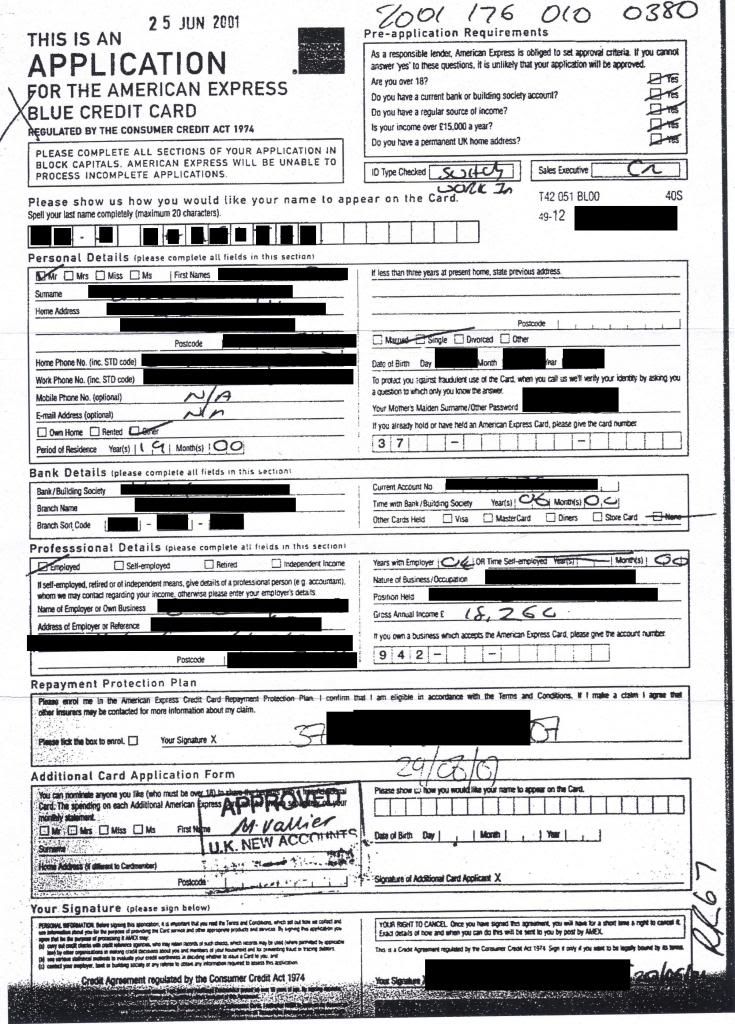I have sent a CCA request to one of my creditors and they have responded with the following.
Now my question is this.
When responding to a CCA request I am aware that the agreement supplied must contain all the prescribed terms.
However, does this document that they send have to be the signature document. Would they get away with supplying what they refer to as the 3rd copy or Card carrier, or does the executed agreement have to contain the signatures?
When entering into a credit agreement with you, we were required to send you three copies of the agreement. The first copy (set out as an application form) was sent out in duplicate. One copy would have been signed by you and returned to us. The second copy (unexecuted, in that it would not have been signed by us) would have been yours to keep. The third copy sent to you would be an executed copy of the agreement, as by that stage it would have been signed by you and us. We do not send out a version that shows both signatures, but nevertheless send an executed copy which is the 'card carrier' copy sent with your American Express credit card.
This executed copy excludes the signatures, but nonetheless complies with the "true copies" requirement of the Consumer Credit (Enforcement, Default and Termination Notices) Regulations 1983. These regulations allow us to omit any signature and/or signature box, so although the card carrier is the executed copy, it does not have to include our respective signatures. On the basis that you received and have been using your credit card, we can only assume that you have been provided with the card carrier and therefore the executed copy of the agreement.
This executed copy excludes the signatures, but nonetheless complies with the "true copies" requirement of the Consumer Credit (Enforcement, Default and Termination Notices) Regulations 1983. These regulations allow us to omit any signature and/or signature box, so although the card carrier is the executed copy, it does not have to include our respective signatures. On the basis that you received and have been using your credit card, we can only assume that you have been provided with the card carrier and therefore the executed copy of the agreement.
When responding to a CCA request I am aware that the agreement supplied must contain all the prescribed terms.
However, does this document that they send have to be the signature document. Would they get away with supplying what they refer to as the 3rd copy or Card carrier, or does the executed agreement have to contain the signatures?




Comment